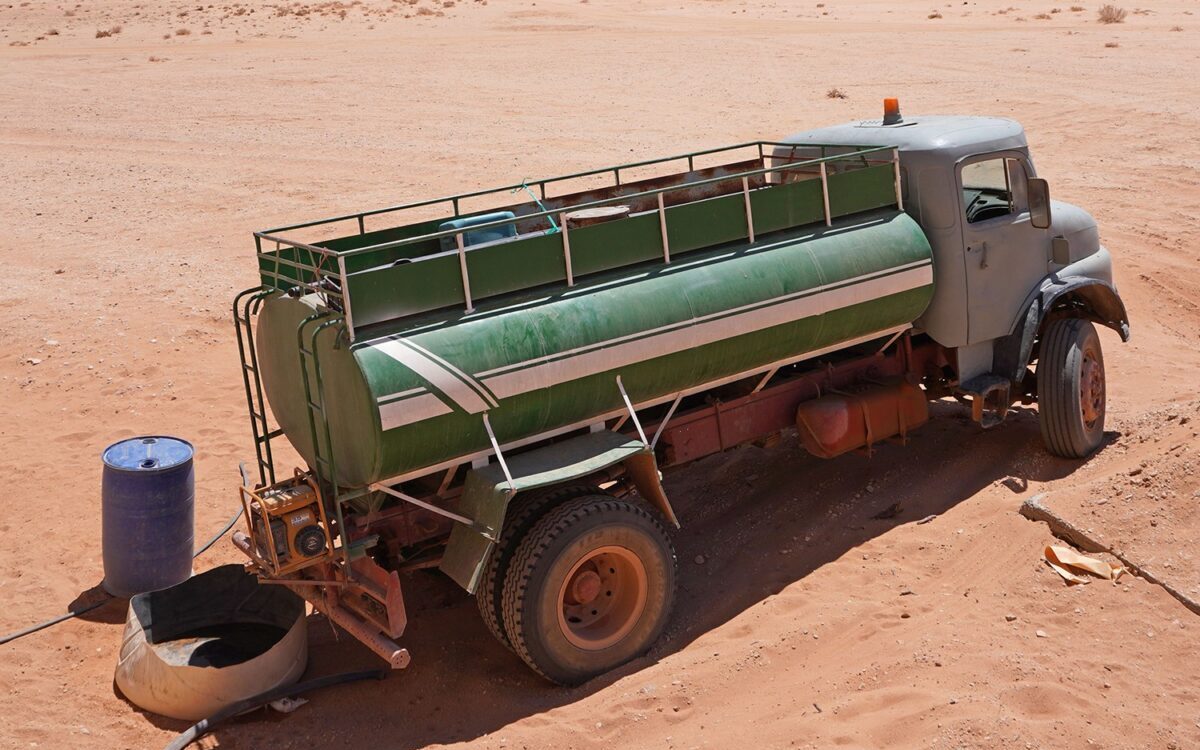August 30, 2023 Ι A UFZ research team quantifies the black market for drinking water. The scientists developed a socio-economic computer model of the Jordanian water sector that links the human-driven water cycle with the natural water cycle.
Water scarcity is a basic problem in many regions of the world. The consequences of this are black markets for drinking water, unauthorised water extraction from private wells, and the uncontrolled decline of groundwater supplies. For Jordan, one of the world’s most arid countries, a team of international scientists coordinated by the Helmholtz Centre for Environmental Research (UFZ) has analysed the role of water markets and discusses the increasing dependence of the population on illegal water trade in an article published in Nature Sustainability. The article identifies solutions with which the state would be able to stabilise the supply of water in the face of climate change.
Illegal water market in Jordan
In more than 30 cities around the world, millions of people obtain their drinking water from storage tanks – because tap water is often available for only a few hours at any one time. When the public water supply is insufficient, households and businesses mostly resort to private providers. Trucks bring drinking water – often tapped from groundwater wells – from the countryside to the cities and sell it there. This is partly licensed by the state but largely takes place illegally.
“In Jordan, these water deliveries by tanker truck make up for the deficit of the public water supply network”, says UFZ economist Dr Christian Klassert, lead author of the study. But the role that these (largely) illegally traded water supplies actually play in the Jordanian water market was unclear until now. “The official data on well extractions for truck water deliveries does not reflect the actual situation. They are considerably lower because the black market for water from tanker trucks had so far not been quantified”.
Moreover, as long as private water markets compensate for the weaknesses of the public water supply, there is little pressure for the state to take measures to improve it. However, groundwater supplies will eventually be depleted. A greater insight into such black markets is therefore required. Especially with the increasing threat posed by climate change, more information on the contribution of these black markets to water security and their impact on society, the environment, and especially on groundwater supplies as well as the possible consequences of stricter state regulation of the markets is urgently needed.
Socio-economic computer model links water cycles
The UFZ scientists, together with hydrologists from Stanford University, therefore developed a socio-economic computer model of the Jordanian water sector that links the human-driven water cycle with the natural water cycle. They extended the model by simulating the black market for water. This was a difficult undertaking because there were hardly any reliable data available for this until now. In order to be able to reliably model the amount of water traded in Jordan and the effects on groundwater levels, energy consumption, and greenhouse gas emissions, the researchers asked well owners and tanker water truck drivers from which wells they extract how much water, how great the distances between the well and the sales market are, and how frequently they take these routes.
With this modelling approach, the UFZ economists were able to quantify the extent of the black market for 2015 as an example. According to the model, the amount of water traded illegally exceeded the amount that was officially allowed to be traded by a factor of 10.7. This means that in 2015, 91% of the water delivered by truck was extracted illegally from wells. “The implications of illegal water deliveries by tanker truck have been completely underestimated so far”, says Klassert.
Publication:
Christian Klassert, Jim Yoon, Katja Sigel, Bernd Klauer, Samer Talozi, Thibaut Lachaut, Philip Selby, Stephen Knox, Nicolas Avisse, Amaury Tilmant, Julien J. Harou, Daanish Mustafa, Josué Medellín-Azuara, Bushra Bataineh, Hua Zhang, Erik Gawel and Steven M. Gorelick. Unexpected growth of an illegal water market. Nature Sustainability. doi: 10.1038/s41893-023-01177-7







